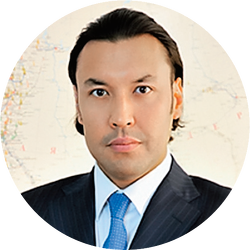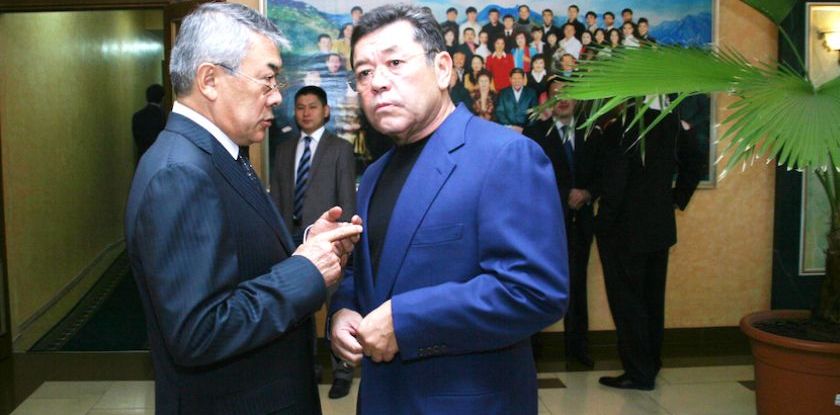Against the backdrop of Tsesnabank’s serious problems due to which its end owners had been forced to sell it despite the substantial support provided the state, another key financial institute has escaped the attention of the civil society, the press and the experts. We are talking about AsiaCredit Bank JSC.
It has the status of a key financial institute because it is owned by Nurbol Sultan, a son of the late Sarbay Karmurzayev.
 Nurbol Sultan
Nurbol Sultan
Rating 50 richest businessmen of Kazakhstan (May 2018)
94 000 000
Finance/42
Nurbol Sultan is the sole owner of AsiaCredit Bank JSC, owns 24% of KSZH Asia Life JSC and, through Meridian Capital LLP, owns a share of International Airport Oral LLP.
50 most influential businessmen (October 2017)
41 years of age
Banks/insurance
Nurbol Sultan is the sole owner of AsiaCredit Bank JSC, owns a share of KSZH Asia Life JSC (24%) and International Airport Oral (33%).
Note that Kalmurzayev-senior used to be one of the most influential people in Kazakhstan, he had been in charge of the Presidential Administration twice and was thought to be the chief of the “Southerners” clan.
According to the information on AsiaCredit Bank’s website, Sultan Nurbol Sarybayuly owns 99% of its shares.
Judging by the reports from the press and the Kazakhstan Stock Exchange, the bank is going through that same ordeal as Tsesnabank had: the reduction of the assets, the exodus of the clients and the hasty retreat of the top-management.
To confirm the fact that AsiaCredit Bank is, if not “drowning”, then “shrinking”, it is enough to look at its Nonconsolidated Balance Sheet Report of December 31, 2018.
The document shows that, in the course of 2018, the volume of the assets and liabilities of AsiaCredit Bank had decreased from 161 bln tenge (as of the start of the year) to 118 bln (as of the end of the year), in other words, by 43 bln (26.7%). Among other things, the check accounts and the clients’ deposits had “shrunk” from 91 to 58 bln tenge, in other words, by 33 bln (36.3%) while the loan portfolio had shrunk from 101 bln to 72 bln, in other words, by 29 bln (28.7%).
However, the dire state of affairs at AsiaCredit Bank is even more evident from the fact that, on January 29, 2019, Erkebayev M.S. (Chiarman), Kobzev D.G. and Asanova A.T were removed from the Board of Directors and replaced with Nugymanov B.T. (Chairman), Ushbayev A.D. and Dauletkhanov K.K. With that, as of February 25, the names are still mentioned on the website.
We at kz.expert believe that AsiaCredit Bank is unlikely to stay afloat. And it is also unlikely that the state will provide it with the support it has given to the other banks during recent years on numerous occasions.
And it is not so much the size of the bank and its insignificant role in the domestic banking system as the fact that its owner, after his father’s death in 2012, has lost not only the position of a top-manager in a large quasi-governmental structure but also any kind of influence in the power system having become an ordinary Kazakh multi-millionaire.
Once again, this confirms the fact that, in Kazakhstan, the ability to make decisions under the authority of the state or to lobby them is more important than money (even big money). Which, by the way, explains the fact why the richest people in the country are found not among regular businessmen but among those who have accumulated their wealth after resigning from the high governmental positions. Not to mention among the President’s relatives and allies.
On photo at the top: Sarbay Kalmurzayev (on the left) and Patokh Shodiyev




